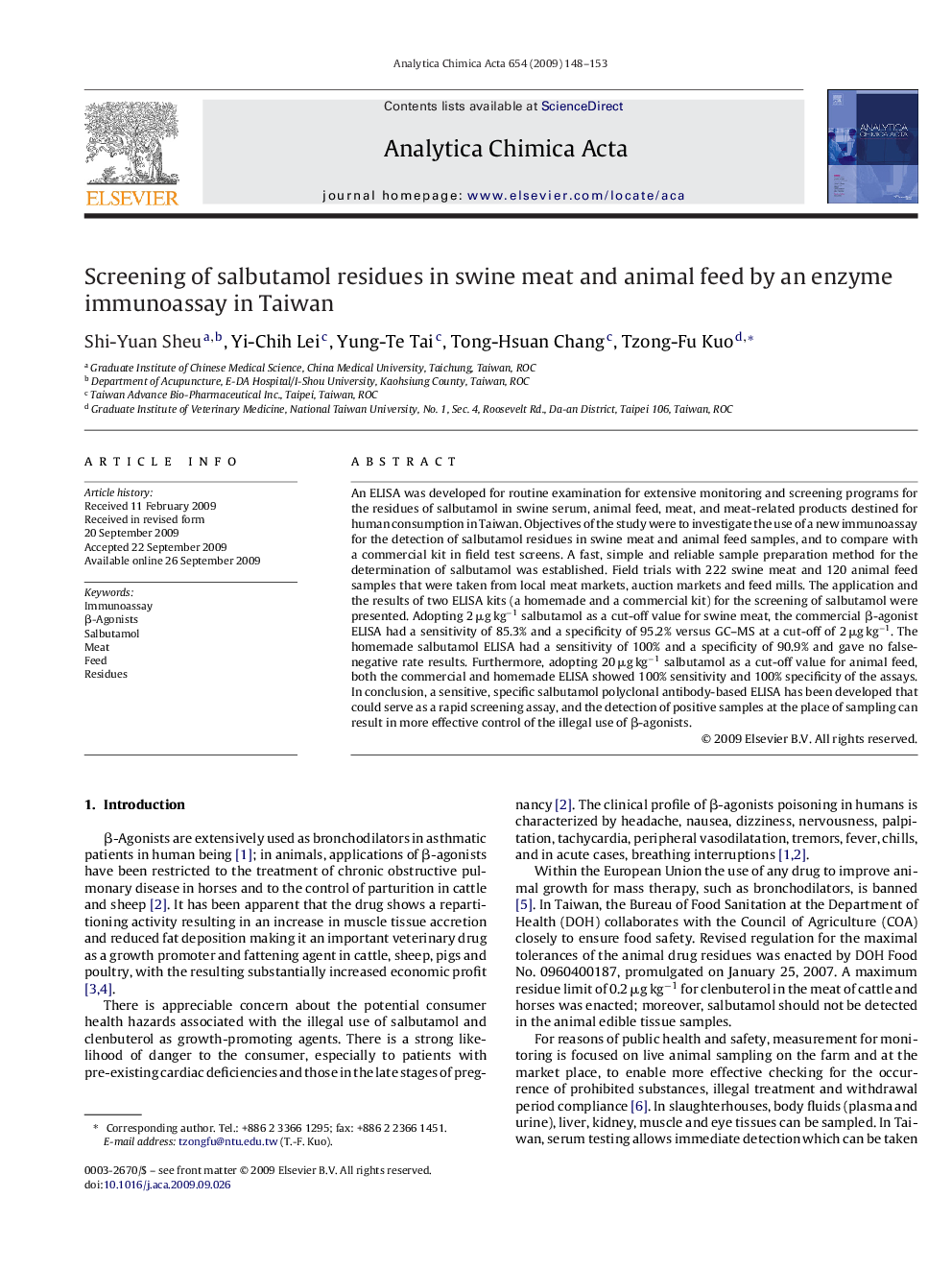| Article ID | Journal | Published Year | Pages | File Type |
|---|---|---|---|---|
| 1167905 | Analytica Chimica Acta | 2009 | 6 Pages |
An ELISA was developed for routine examination for extensive monitoring and screening programs for the residues of salbutamol in swine serum, animal feed, meat, and meat-related products destined for human consumption in Taiwan. Objectives of the study were to investigate the use of a new immunoassay for the detection of salbutamol residues in swine meat and animal feed samples, and to compare with a commercial kit in field test screens. A fast, simple and reliable sample preparation method for the determination of salbutamol was established. Field trials with 222 swine meat and 120 animal feed samples that were taken from local meat markets, auction markets and feed mills. The application and the results of two ELISA kits (a homemade and a commercial kit) for the screening of salbutamol were presented. Adopting 2 μg kg−1 salbutamol as a cut-off value for swine meat, the commercial β-agonist ELISA had a sensitivity of 85.3% and a specificity of 95.2% versus GC–MS at a cut-off of 2 μg kg−1. The homemade salbutamol ELISA had a sensitivity of 100% and a specificity of 90.9% and gave no false-negative rate results. Furthermore, adopting 20 μg kg−1 salbutamol as a cut-off value for animal feed, both the commercial and homemade ELISA showed 100% sensitivity and 100% specificity of the assays. In conclusion, a sensitive, specific salbutamol polyclonal antibody-based ELISA has been developed that could serve as a rapid screening assay, and the detection of positive samples at the place of sampling can result in more effective control of the illegal use of β-agonists.
